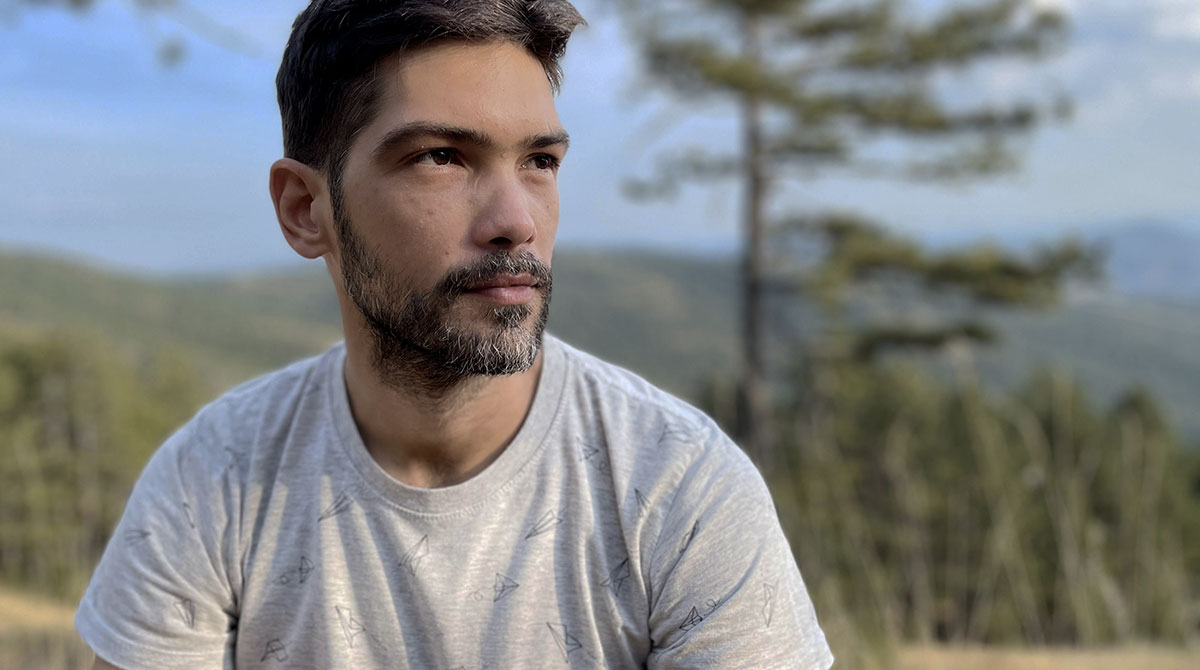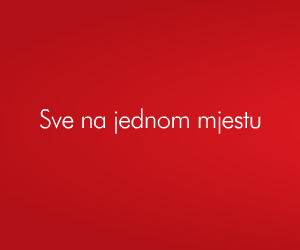
10/10/2024
I wondered how it was possible that on the site of the oldest European culture there is now one of the largest landfills in the world
On the outskirts of Belgrade, Serbia, one of the biggest landfills in Europe spreads across the remains of the ancient Vinča civilization. Plastic bottle collectors aka ‘bottlemen’ make a hard living from this toxic landscape, but now their vibrant community is facing a new threat. The documentary western drama “Bottlemen” is in the competition of this year’s Mediterranean Film Festival in Široki Brijeg which was the occasion for this interview with the director Nemanja Vojinović.
What inspired you to make the movie "The Bottlemen"? How did you come up with the idea to focus on this community and their everyday life?
The first inspiration for the film came after I had seen the photo reportage from the landfill in Vinča. It was a photograph of a collector standing on a huge pile of waste while thousands of seagulls fly in the background. I thought that it was some distant third world country, but actually it was here in Belgrade, in Vinča. The original idea was to make an essay film about consumerism and the historical vertical of the Vinča area, the conflict between the ancient Neolithic civilisation and the modern era - the landfill. Then I went to the Vinča landfill and stood at the unloading point, on the top of a hill of more than fifty meters of garbage. Thousands of seagulls flew above me, while the heavy machinery rushed to unload and grind everything in front of it. I turned around, and behind me was a completely unknown world – hundreds of workers, rushing towards the unloading point with backpacks on their backs or returning to their bases with bags full of plastic bottles. A parallel, invisible world opened up, a chaotic system in which everyone has their place. The people "won me over" me and I wanted to show the unexplored universe of "bottlemen".
You spent a lot of time with them, a big part of the shooting of this film was non-shooting.
If you want to enter a closed community, like the bottlemen, it really requires a lot of time and dedication. We were hanging out with people, talking, researching and we tried to establish an honest and open relationship with our characters. In the beginning of the shooting, I didn't know that I would focus only on bottlemen. At first, we started much wider and more ambitiously, I wanted the landfill to be the main character, with all its aspects, which includes all the workers of the landfill. So I filmed various people, including Jani while he was still not the group leader. After more than half a year, Jani progressed from an ordinary bottleman to a group leader, he got his van and a place to unload. And then I already knew him and was filming him, so through Jani I had the opportunity to show what the plastic business looks like at the landfill through the eyes of the group leader of the bottlemen. Not all the people from his group made it into the film, some of them did not want to participate and be filmed, and we respected that and focused on the relationships in the rest of the group who wanted to be a part of the film. All of this was interesting to them, and they were somehow proud of the fact I chose them and not some other group. They realised that with the film they would remain "immortal" forever, which was especially important to Jani and he told me that was one of the reasons why he let me into his life and allowed me to shoot a film about him and his group.
You are showing a combination of the ancient Vinča civilisation and a modern landfill, what do you want to say to the viewers through this contrasting image?
As I have already mentioned, the Vinča culture was my motivation and the starting point of thinking about the film - how is it possible that the site of the oldest European culture is now one of the largest landfills in the world? Why do we nourish such negligence towards a culturally and historically significant area? The original idea was to make a visually powerful essay film about consumerism and the legacy of the Vinča area, made in three layers. The past of the Vinča culture, the contemporary layer of consumerism and modern lifestyle through images of the landfill, and the third layer is the question of what future generations will think about our civilisation in a few thousand years. Will they consider us plastic people, call us Homo plasticus?
How does this situation of "bottlemen" reflect on the wider picture of social and economic problems in Serbia? What do you think is the most important thing viewers need to know about their fight?
Bottlemen are a specific phenomenon, related to the Vinča landfill. They are collectors of plastic bottles, “bottlemen” in slang. That's what they call themselves, so I just adopted the nomenclature of their world and dedicated the title of the film to them. There are two groups of collectors on the landfill, one who collects metal and they call themselves “metals”. The more numerous group of collectors were the bottlemen. They are divided into smaller groups, and each of the groups had their group leader, a car or a van and a flat near the landfill. They worked daily, according to the principle of seasonal work, without any health insurance or social protection. They came from different parts of Serbia in search of money and a better life, fighting with each others about bottles and bags. As time passed, they found themselves in an even more difficult position, living on autopilot, often forgetting why they came there in the first place. The reason they stayed to work on the landfill was money, because they could earn two or three average Serbian wages – working “on the bottles”. Even though the landfill is owned by the city of Belgrade, the entire business of collecting bottles and recycling plastic bottles is a part of a private business, which I did not want to follow through the film because we are entering the domain of investigative journalism.
You are presenting the film as a documentary western drama?
The main thing that makes "Bottlemen" a western is the idea of the western genre from a later stage, where the upcoming modernisation destroys the world, the universe, the civilisation of our movie heroes and they fall into oblivion. For example, in one of the best western films “The Wild Bunch” by Sam Peckinpah, the automatic rifle arrives, the symbol of modernisation that destroys the main characters’ world. In "Bottlemen" it is the modernisation of the landfill that comes and erases the civilisation of the bottlemen, making it just another layer of the Vinča vertical. There is no perspective for the collectors at the Vinča landfill, they disappeared like dinosaurs, as one of my heroes would say in the film.
The process of work on the film lasted for almost seven years?
Yes, the first time I was standing on the landfill with the director of photography Igor Marović was in December 2016, and the film “Bottlemen” had its world premiere at Sarajevo Film Festival in 2023. Editing was a totally different story, I spent almost two years with the editor Dragan von Petrović fitting the story and it was a great film school. Considering so many years of filming, we had a lot of material, and a huge job was to first go through all the material, select great and useful scenes and dramaturgically shape and articulate it into a narrative whole. The idea was to have a dramaturgical line that would follow the main character Jani, who had difficulties keeping his group of bottlemen together - we started with him as the leader of the group, later the group turned against him, separated, and Jani was left to work alone, until closing the landfill. It was necessary to skilfully connect his story with the story of the landfill, with images of the contemporary lifestyle and consumerism, the story of a society on the edge of an ecological disaster that is always present, but not a "finger in the eye".
We invested a lot of time into the presentation of the project and in search for the finances. There were moments when the producer Marija Stojnić and I really thought that it would be difficult to make it, especially due to the constant delay in closing the landfill, which was intended as a natural end to the film. When you add the Covid epidemic to all this that turned every plan we had upside down, we can say that we went through a very challenging process.
The film still has its festival life and is travelling around the world, what were the first reactions?
We had a lot of screenings and conversations with the audience, and all the comments were very positive and this makes me truly happy. People are mostly surprised by the film and moved for a variety of reasons - because of the relationship with the father, the visuals of the film, the choice of music, the authenticity of the characters, and even the fear of birds.
What message do you want to convey to the audience?
With this film, I wanted to show an intimate portrait of human destinies, and that is what is in the foreground, while the ecological disaster happens in the background, sometimes directly, but we perceive it as an integral part of the insane universe of the Vinča landfill. I tried not to portray the life of bottlemen as exotic, nor to make it any kind of exploitation of poverty or the theme of collectors of secondary raw materials, something that foreigners would call "misery porn". I wanted a film full of life, humour and empathy, something that you don’t expect in such a place and I believe that I succeeded in this with an unbelievable and resilient community of bottlemen at the Vinča landfill. I think that this empathy, as well as the visual aspect of the film, touched the viewers the most.
What do you think about the future of communities like the one that you presented? How can film contribute to raising awareness and changes in society?
I tried to make "Bottlemen" also have a strong social component, because it is very important that through the film you can also educate, not only the younger generations but the entire society, that through the documentary film and the presentation of the human drama you can point to empathy or lack of empathy towards people who belong to vulnerable and marginalised social groups, as well as to present some kind of reminder for each of us that everything we do leaves some consequences - both for the individual, and for society, and especially for the environment.


